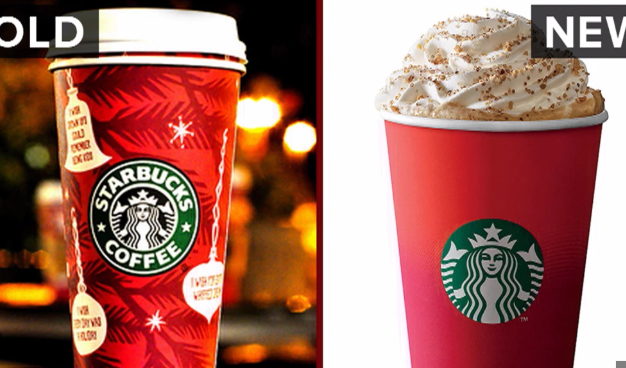starbucks controvery has faced a multitude of controversies over the years, spanning ethical, social, and labor-related issues. Here’s a breakdown of some of the significant areas of controversy surrounding the coffee giant:
1. Anti-Unionization Efforts:
- Accusations of Union Busting: Starbucks has been repeatedly accused of employing aggressive anti-union tactics in response to the growing unionization movement among its baristas in the United States. These tactics allegedly include intimidation, surveillance of pro-union employees, reducing work hours for union supporters (potentially impacting their healthcare eligibility), and even terminating employees who advocate for unionization.
- Store Closures: The company has also faced criticism for closing certain stores shortly after their employees voted to unionize, actions that many perceive as a deliberate attempt to discourage unionization efforts at other locations.
- Legal Battles: Starbucks has actively challenged findings by the National Labor Relations Board (NLRB) that ruled against the company for illegally retaliating against and surveilling workers involved in unionization attempts.
- Boycotts: In response to these anti-union practices, numerous calls for boycotts of Starbucks have emerged, supported by labor activists and consumers who believe corporations should not interfere with workers’ rights to organize. The “Starbucks Workers United” movement, affiliated with Workers United, has been central to these unionization efforts, with over 500 stores in the U.S. having voted to unionize as of early 2025. However, a collective bargaining agreement has yet to be reached for any of these stores.
2. Allegations of Discrimination:
- Racial Discrimination: Several incidents and lawsuits have accused Starbucks of racial discrimination. A notable case in 2018 involved the arrest of two Black men in a Philadelphia store who were waiting for a friend without making a purchase. This incident led to widespread condemnation, a public apology from the CEO, and temporary racial bias training for all U.S. stores. However, a subsequent lawsuit by a white regional manager who was fired in the aftermath of the incident resulted in a significant payout to the former manager, with the court ruling that the company violated her civil rights and state anti-discrimination laws. More recently, in February 2025, the state of Missouri filed a lawsuit against Starbucks, alleging that its diversity, equity, and inclusion (DEI) policies involved race- and sex-based quotas in hiring and compensation, leading to discrimination. Starbucks has denied these allegations, stating its programs are lawful and open to everyone.
- Sexual Orientation Discrimination: In March 2025, a former Starbucks manager in New York filed a lawsuit claiming he faced harassment and discrimination due to being a heterosexual man, alleging that his complaints about “extreme and outrageous” harassment from LGBTQ+ employees were ignored by supervisors, ultimately leading to his termination. This case highlights the complexities of discrimination claims and the legal protections afforded to all individuals, regardless of their sexual orientation or gender identity.
3. Boycotts Related to the Israeli-Palestinian Conflict:
- Misinformation and Perceived Stance: In late 2023, Starbucks faced significant boycott calls stemming from a now-deleted social media post by Starbucks Workers United expressing solidarity with Palestine. Although Starbucks condemned the union’s message and強調した its neutrality in political matters, the incident led to a widespread misperception that the company was taking a pro-Palestinian stance. This resulted in backlash and boycott calls, particularly from those supporting Israel.
- Financial Impact: Starbucks acknowledged a negative impact on its business in the Middle East and some effect in the U.S. due to these boycotts, with reports of declining sales and a drop in stock value. Franchisees in the Middle East even had to lay off a significant number of staff due to reduced business.
- Indirect Ties: Some pro-Palestine activists continue to call for boycotts due to the company’s indirect economic links to Israel through major shareholders who also have investments in Israeli companies, despite Starbucks’ official denial of direct financial support to Israel or any military operations.
4. Other Controversies:
- “Anti-Pride” Allegations: In June 2023, allegations surfaced that some Starbucks managers instructed employees not to display Pride decorations, sparking concerns about the company’s commitment to LGBTQ+ inclusivity.
- Shortchanging Customers: Past lawsuits have accused Starbucks of underfilling lattes and iced drinks, effectively shortchanging customers. While some of these lawsuits were dismissed, they generated negative publicity.
- Milk Sourcing: The company has faced scrutiny regarding the transparency and ethics of its milk sourcing practices.
- Cup Designs: Over the years, Starbucks’ holiday cup designs have occasionally sparked controversy, with some accusing the company of being insufficiently inclusive of all winter holidays or, conversely, of waging a “war on Christmas.
In conclusion, Starbucks has navigated a complex landscape of controversies, ranging from its labor relations andDEI policies to its perceived political stances in international conflicts. These issues have, at times, led to significant public criticism, legal challenges, and consumer boycotts, highlighting the increasing scrutiny faced by large corporations regarding their social and ethical responsibilities.

